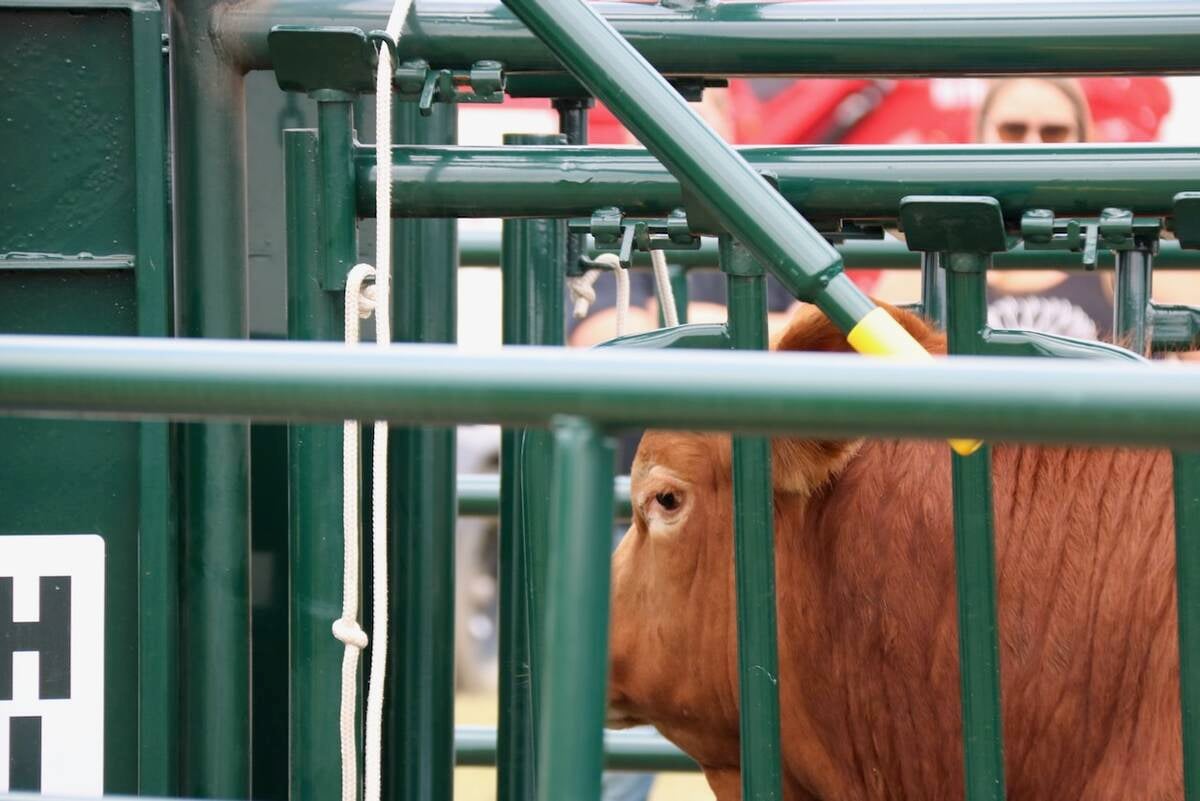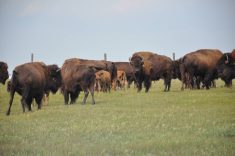After being in the Hereford business since 1946, Gordon Henderson had his second grand champion at the Calgary Bull Sale.
Based at Forestburg, south of Edmonton, Little Poplar Grove Herefords has been coming to the bull sale since Henderson was a youngster.
Now working with his son Allen and daughter-in-law Lorraine, he is in the winner’s circle in a year beaten down by the impacts of BSE and no export markets.
Drought in 2002 left him with a three-bushel barley crop and forced a decision to change the cow herd. Last year he had one of the best feed crops ever, but BSE loomed.
Read Also

Good handling equipment a must on cattle operations
It’s important for the safety of producers and everyone else dealing with their stock that handling equipment is functional and safe.
This past year resulted in the heaviest culling the ranch has ever done, leaving only the best behind.
“You only need the best because they’re never good enough. You can only get better and better,” he said.
“We’re keeping only the great ones.”
The Hendersons divided their herd into a commercial side and a smaller purebred division.
“We have steers that are better than most people’s bull calves,” he said.
The farm was granted century status last July and it expects to survive.
In better days, the family sold bulls to the United States for five figure amounts, including a half interest in one sire at $67,000 US.
This crisis may remove some of the lesser quality and encourage people to scrutinize their overall herds and breeding plans with more objectivity.
“We have to have these bad times to balance the good,” Henderson said.
His family has no plans to make widespread changes because of the years invested in their herd.
It sold its grand champion for $5,400 to Red Willow Colony at Stettler, Alta. They have become good friends over the years because the Hutterian Brethren have bought many bulls.
Mark Hofer from Red Willow works with the colony cow herd. The colony buys four or five new bulls every year to keep the beef program current and the quality high.
“We only buy the best,” Hofer said.
“There are years and years of breeding. You have to do that. You can’t give up,” he said.















